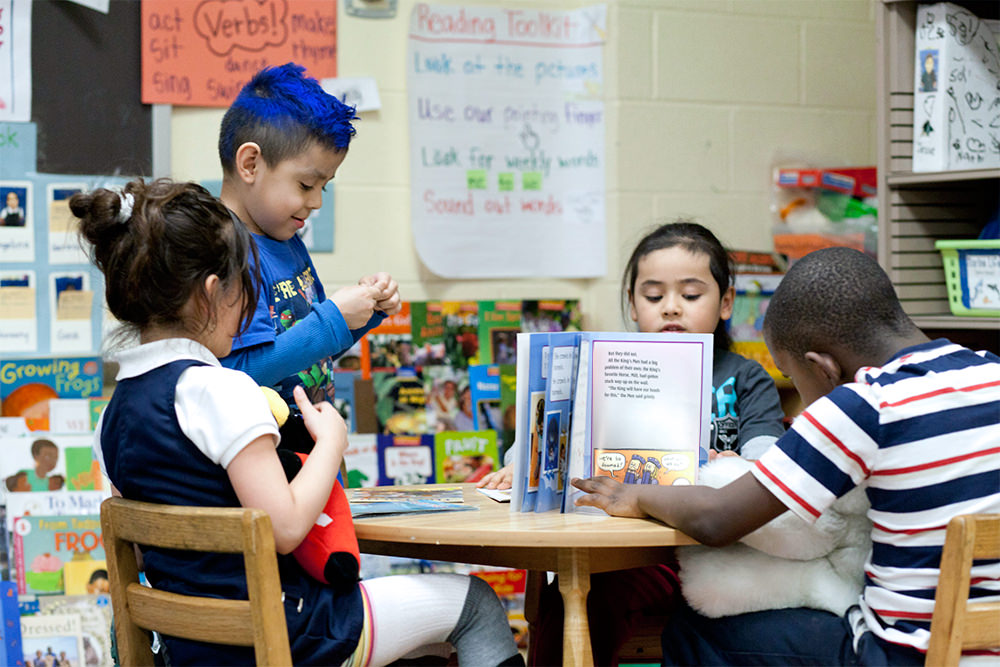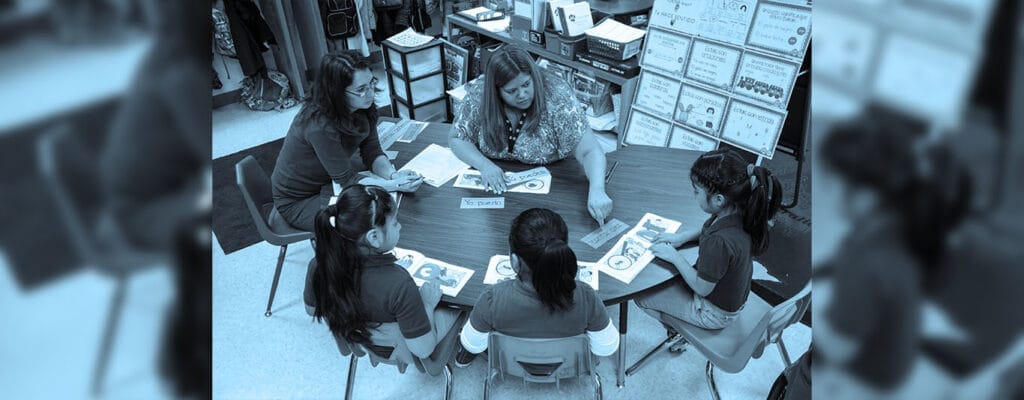


Here’s what students had to say about the literature circles in their classrooms:
“I get to ask more questions and learn more by talking about the books with my friends. We help each other with new words, reading them and understanding them.”
“During book clubs we talk to people and they can help you figure out questions or words. Book clubs help you talk about your questions and what you read.”
“I like how we talk about what we read and we ask questions. What I mostly like about book clubs is when we get in the group we take turns talking about points that are important to us.”
Literature circles give students the opportunity to talk about books with their peers. Through these conversations they build community, learn critical speaking and listening behaviors, deepen their understanding of books, and…recognize that reading is fun!
While we know literature circles have a high impact on learning, we’ve seen some obstacles teachers face when implementing them, such as:
 We’ve also seen classrooms in which book clubs were organized and thriving! – leading us to ask the question, “How does that happen?” When speaking to a 3rd grade teacher about the successful literature circles in her classroom, we discovered several key factors for success:
We’ve also seen classrooms in which book clubs were organized and thriving! – leading us to ask the question, “How does that happen?” When speaking to a 3rd grade teacher about the successful literature circles in her classroom, we discovered several key factors for success:
She shared that she “tried to facilitate or guide rather than lead,” and “…when they transitioned into their second book they knew the routine and were able to meet on their own without reminders. Groups scheduled when they would meet next and what they would read independently. I met with a few of the groups during their last meeting. One of the things that impressed me the most was how they looked at one another and listened so intently to what others were saying about the text.”
What can we learn from this teacher’s experience with literature circles? She did so many things right and we can try to replicate her by doing the following.
Model what you want the children to do: how to read a text aloud and use sticky notes to write questions or vocabulary, how to use the materials they are given, how to take turns, ask questions, talk, and think. The more you model, the more successful students will be when they work together.
Our goals for literature circles or book clubs should always be to promote a love of reading, and create additional opportunities to read and discuss great books. Literature circles can provide these meaningful learning experiences if we provide the time, access, and support to allow them to grow together as readers and thinkers! With planning, commitment, and support, the goals of literature circles are realized!


Job-embedded coaching is the key to teacher retention and literacy success. By providing real-time support, fostering collaboration, and improving instruction, coaching helps educators thrive[..]

CLI’s 15 on Friday podcast delivers bite-sized conversations on literacy and equity in just 15 minutes. Featuring authors, educators, and advocates, each episode inspires[..]